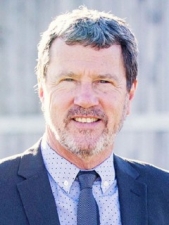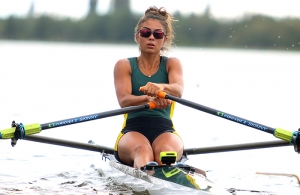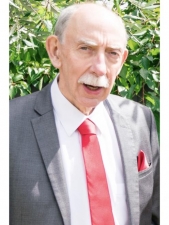Search

 David Ward - Photo supplied.The President’s Award for Distinguished Contribution to SOLGM has been awarded to David Ward, Chief Executive of Selwyn Council and former Chief Executive of Horowhenua District Council.
David Ward - Photo supplied.The President’s Award for Distinguished Contribution to SOLGM has been awarded to David Ward, Chief Executive of Selwyn Council and former Chief Executive of Horowhenua District Council.
This Award is for a SOLGM member who has made a significant contribution to SOLGM.
David is a long-term and significant supporter of SOLGM. He has been a member since 2003 and has been heavily involved in two SOLGM Working Parties spanning more than 15 years.
David joined the Finance Working Party in 2004 and became Chair in 2009, a position he retained until 2017. During this time the Finance Working Party oversaw the development of significant guidance to the sector on the move from IFRIS to PCPB accounting. In 2018 he was appointed Chair of the Democracy and Governance Support Working Party.
David is also a strong supporter and mentor to the young leaders that report to him. He has supported them to attend the Executive Leaders Programme and several have gone on become chief executives. At Selwyn David established a Young Leaders Group, which is co-chaired by two (different) young leaders each year. Under his direction they establish a speaker programme for their monthly meetings which includes both internal and external speakers. They have a framework of learning from others and learning from themselves.
SOLGM’s annual Gala Dinner event was cancelled due to COVID-19, and so award recipients were announced online this year.
© https://www.solgm.org.nz/ 9 May 2020
 Veronica Wall in action on the waters of Lake Hood. Photo supplied.It was over before it had even begun.
Veronica Wall in action on the waters of Lake Hood. Photo supplied.It was over before it had even begun.
Ashburton’s Veronica Wall had her rowing programme turned upside down when Covid-19 began to envelop the globe.
The 20-year-old Ivy League student was in the final week of Spring Break and had travelled to Tennessee for her first rowing meet of the season.
In a whirlwind few days she would soon find herself back on a plane to New Zealand, with her rowing season canned and schooling year left in a shroud of doubt.
The national rowing champion, who attends Yale University, has been in lockdown with her family in Mid Canterbury for the past six weeks.
“It all happened really fast,” she said.
“Over that (final week of Spring Break) there had been murmurings of other schools starting to close down and not let other students back after Spring Break and moving to online classes.
“The day we got to Tennessee we found that Yale had gone to online classes and they were advising all of the people who had left for campus for Spring Break shouldn’t come back.”
By March 12, The Ivy League had cancelled all spring sport due to concerns around Covid-19.
“By that stage, we had no reason to be at school anymore,” she said.
“It was pretty devastating.
“We had gone down for our first race of the season when it all got cancelled.”
This effectively meant months of training and preparation for Wall and her teammates had come to nothing.
“It sucks for all athletes in spring sport, especially with rowing because it’s a sport where you train all year round for.”
Wall was then left three days to pack up her things and leave campus after Yale issued an exit notice to remaining students.
“It was insane,” she said.
With the United States now representing the hotbed of the pandemic, Wall’s return to school remained unclear amid an ever-changing saga.
“I’ve been talking to some of the girls who are over in the States.
“I think it’s very mixed, because it’s a situation that continues to change all the time, the universities don’t really know where they stand on what’s going to happen when people come back to campus and when people are going to come back to campus.”
Further announcements are expected to be made by The Ivy League in July, Wall said.
“There’s every possibility that we might not be back when the fourth semester starts.
“It’s such a strange situation.”
Although it had been a long two months for the star rower, she has channelled her energies into her online classes, rowing machine workouts and weight training.
Rowing was permitted under Alert Level 3, although restrictions around shared equipment and facilities were still in place.
Wall has dozens of national rowing titles to her name and has been an integral part of New Zealand’s under-23 setup, however she had taken the year off from trialing for the under-23 squad.
She said she was somewhat lucky that no other noteworthy events had been impacted by Covid-19.
“I was kinda lucky in that respect that I had already decided I didn’t want to trial for the under-23 team.
“I just wanted to take a year out of international competition and have a break just to reset.”
All of Rowing New Zealand’s international events this year have been cancelled.
The 2024 Olympics in Paris was an aspiration for Wall, however as Covid-19 has taught her, life can throw up the occasional curveball.
“It would be nice to come back after my degree and go to the Olympics,” she said.
“That would be one of my long term goals.
“As this whole Covid business has shown, you can’t plan for everything.”
By Adam Burns © The Ashburton Guardian - 4 May 2020
 Kevin Tutty - Photo supplied.One of Canterbury’s best known and most respected sports journalists has died.
Kevin Tutty - Photo supplied.One of Canterbury’s best known and most respected sports journalists has died.
Kevin Tutty, 70, passed away in Christchurch on Tuesday, after a short illness.
Tutty started his career as a cadet at The Press in 1968, finally retiring in July 2012 after 44 years and six months with the newspaper.
Swimming and hockey were the main sports Tutty covered, where he gained great respect, trust and admiration from the players, competitors and administrators in the codes.
Tutty covered his first national hockey tournament in 1971 and reported the Hockey World Cup in Bombay (now Mumbai) a decade later, sharing a hotel room with radio commentator Bryan Waddle.
“I lost a few kilos there, mainly because I was too scared to eat. In a lot of cases the team had a lot of those two-minute noodles, we pretty much lived on those for a week and a half,” Tutty told senior sports reporter Tony Smith in his farewell interview in The Press.
He covered a women’s World Cup in 1982 and a New Zealand men’s tour on secondment to the New Zealand Press Association.
He derived great satisfaction from covering the triumphant return of New Zealand’s gold medal-winning hockey team from the 1976 Olympics. He’d played hockey at Ashburton College with team member Paul Ackerley.
Tutty covered six Commonwealth Games, starting with the 1974 event in Christchurch.
He told Smith, one of his most vivid Commonwealth Games memories was the 1986 boxing heavyweight final between Aucklander Jimmy Peau and Scotland’s Dougie Young.
“The crowd was basically all Scots, they all had their blue and white scarves on,” Tutty recalled.
“The crowd was screaming ‘Scotland, Scotland’, they had their scarves going left and right with Young well ahead on points in the third round. I had a look up at the clock above the ring. There were 30 seconds to go, I said to myself, ‘looks like you’ve had it, Jimmy’.”
“But Young, instead of just walking backward, kept going in after Jimmy. He got Jimmy on the ropes and went in a bit low and Jimmy just saw an opening. His punch travelled maybe nine inches, the guy was gone. I looked at the clock and I think it was 15 seconds to go.
The place went dead silent.
“I saw the Scottish guy in the foyer three-quarters of an hour later and he still looked groggy.”
Tutty always had a burning ambition to be a sports reporter. But he was told he had to cut his teeth in The Press’ Ashburton office, where he covered mainly general news.
“They told me I’d have to do a year or two in Ashburton first to learn the trade. There were no journalism schools then. It was sink or swim. Reporters learned from observing and aping experienced colleagues.”
Tutty had to teach himself the most basic journalism skill.
“I had no typing experience, it wasn’t like you had computers at home in those days. So I went to the school commercial room where they were throwing out a pile of text books and asked for one which showed you how to touch-type.
“The Press gave me an old typewriter from the Ashburton office and I spent a bit of time over the holidays learning how to type.”
In March 1970, Tutty got the call to go to Christchurch. He joined a sports department led by legendary sports editor Dick Brittenden who was assisted by the equally erudite John Brooks. The sports staff included Kevin McMenamin, John Coffey, Rod Dew and Ray Cairns. Bob Schumacher joined soon after, and Tim Dunbar and David Leggat came aboard in the mid-70s.
A strong esprit de corps prevailed. Sport was almost exclusively confined to Saturdays, so The Press crew found time on Sundays to play social soccer or cricket, including annual clashes with their Christchurch Star counterparts.
“Often, it was just an excuse to run around for an hour or two and then have a few beers,” Tutty quipped.
In retirement, Tutty continued to devote himself to his family.
© Star News - 1 May 2020


